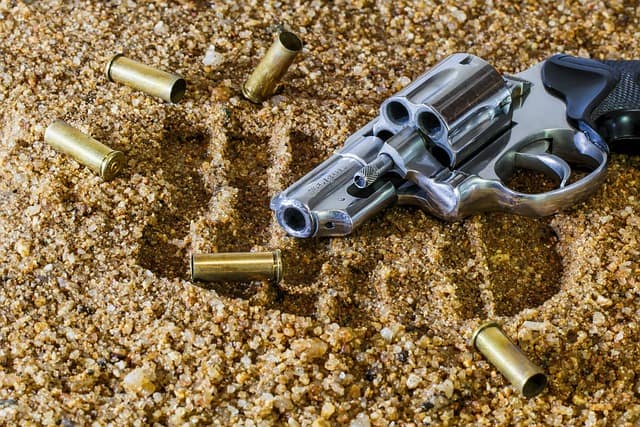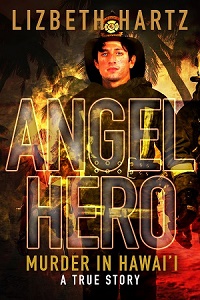A Braided Essay: These Dreams of Love

I Become – Part 1
Back in the ‘70s, soon after graduating from college in California, I joined my mom and dad on Oahu and became a lonely little bird, my song squelched inside the gilded cage of my parents’ military home. Sorely missing my college friends’ comradery, surrounded by uniformed Air Force officers, I descended into depression.
A recurring nightmare shattered my sleep, painted black circles beneath my eyes. My bedroom door would creak open and, somehow, I knew a monster lurked behind. My heart, pounding faster than hummingbird wings, shocked me awake and made me bolt upright in bed. I scribbled my dream down but had no idea what the monster was trying to tell me.
My sympathetic mom, observing me droop like a wilting sunflower, signed me up for an encounter group advertised through the University of Hawai’i. The group leader, Sasha, had a PhD in anthropology and an Assistant Professorship in Anthropology at UH. His fluorescent tie-dyed shirt shone blue, green, and gold. His smile was wide and welcoming, his green eyes sparkled. I felt drawn to this teacher who radiated so much more aliveness than I felt.
The group of ten present and former college students sat in a circle and shared their stories and emotions. When my turn came, I bemoaned my lack of friends in Hawai’i, my monster dreams, and my military dad’s authoritarian rules. I feared leaving home because I had no way to support myself. I had never survived on my own. Daddy paid the bills.
Sasha worked with me one on one. We role-played my dream. I sat and he pointed at an empty chair facing me. “Talk to the monster.”
I asked, “Who are you, monster?”
The imaginary monster growled, “I’m your fear.”
“What am I afraid of?”
The monster bared his teeth but said nothing.
I trembled and pleaded. “Tell me.”
Sasha suggested, “Leaving home?”
“Yes!” That felt right. How could I not have known?
Fear of my father also gnawed at me. When I was small, he pinned me down and tickled me until I cried. I felt like raw dough my father could mold into whatever shape he wanted, and hated him for squashing me so I couldn’t fight back. Totally, desperately trapped, I panicked that I couldn’t move.
Dad squelched me when I asked him “why” questions and he answered, “Because I say so.” Other times, he relaxed into his fun-loving side. His teasing made me laugh; his hugs felt warm and comforting. But the good times couldn’t erase my bad memories.
Wanting to live on my own, I took Sasha up on his offer to stay with friends of his until I found a job. I packed up clothes, toiletries, and books, and moved out when Dad wasn’t home. Leaving was daunting. I believed I was a babe in the woods and couldn’t make it on my own.
Sasha said to feel the fear and face the monster. I gulped and said, “Okay. I’ll talk to Dad.”

Van and Barry – Part 1
Back in ’71 in San Diego, a year after I graduated from college and moved to Hawai’i, decades before Barry and I married, he became a student of a visionary and gifted chiropractor, Dr. Richard Van Rumpt. Barry wanted Van to be his teacher from his first day in chiropractic college. That’s when he heard Van’s advanced student, Carey Wilkins, a hippy-looking guy with a black beard and long hair, ask about a white dove who’d flown through one of the open office windows and smack dab into a wall.
Carey had stepped into one of the chiropractic teacher’s offices, where some half dozen chiropractic students hung out, practicing leg measuring and adjusting each other on portable tables. Student Ed Kelly had lifted the unconscious dove off the carpet and placed it in a cardboard box. He was planning to take the bird and box outside in hopes that the bird would wake up and fly away, when Carey Wilkins walked into the room and asked, “Who touched the bird?”
“I did,” said Ed Kelly.
Carey motioned Ed to lie on an adjusting table. He leg-measured Ed, jotting down notations of listings (whether vertebrae had rotated or tilted in a specific direction.) Next he picked up the bird and applied pressure to a variety of points on its small body before placing the bird back into the box.
“Take it to the parking lot, Ed,” Carey said. “Watch out for the orange cat living there, and wait until the bird wakes up and flies away.”
Ed didn’t have to wait and watch. The moment he stepped onto the parking lot, the bird flew away.
Barry immediately understood that Carey was getting accurate listings for the bird off Ed.
On the following day, Barry phoned Van. They clicked immediately and Van accepted Barry as a new student. Fourteen years later, Barry became Van’s choice for a successor to carry on the powerful technique he had created and refined–D.N.F.T. (Directional Non-Force Technique.)
So gifted was Van the Innate Man, as he called himself, that he attracted the attention of America’s most renowned psychic, Edgar Cayce, aka The Father of Holistic Medicine. Cayce, intuiting Van’s amazing healing ability, referred 200 plus patients to him, sight unseen.
In 1924, when 20-year-old Van was a professional bantamweight fighter in Chicago, he refused to throw a fight for the Mafia. Thugs were dispatched to teach him a lesson, burning him with cigarettes, breaking all the bones in his face, and severely injuring his eyes, which eventually led to his blindness. Van didn’t let his injuries stop him from constantly refining and expanding the technique he’d started creating at 16 years of age. For the 65 years he was in practice, he continued his study and research.
Like Cayce, Van developed the ability to see without using his physical eyes. In 1979, Van had a cataract surgery redone in the UCLA hospital after the doctors botched the first one. In those days, laser surgeries weren’t performed, and failures were common. Van was one of many patients who suffered injuries from surgeries gone wrong.
Knowing Van was ill, Barry followed an impulse to write a letter about his gifted mentor to Van’s “Non-denominational God.” Barry wrote, “God, we really need Van to be well enough to keep teaching,” then shoved the letter into a Bible and forgot about it.
The next day, much to his shock and delight, Barry received a phone call from Van, saying he needed a ride from the hospital to his home in Santa Barbara.
“Sure!” Barry said.
The first thing that Van, who was legally blind, said after he got in the car, was, “Take a right at that next stop sign.” Barry’s jaw dropped at the realization that Van was seeing psychically, an ability that, after years of adjusting patients, Barry developed as well. For the next ninety minutes, Barry followed Van’s directions home.

Angel Hero, Murder in Hawai’i, a True Story – Part 1
On the night of July 10, 1984, my boyfriend of eight years, Billy, left me crying in our tiny apartment in Honolulu and flew to the Big Island, turning my fears of abandonment into reality.
A decade earlier, a palmist had warned me about falling for emotionally-distant men like my dad. When I met Billy, part-Hawaiian surfer and full-time student, in a Hawai’ian studies class at the community college where I taught non-credit Hatha Yoga, he seemed warm and engaging. After we got to know each other better, however, my fear of abandonment and his dislike of Caucasians clashed. I clung and he pulled away, ranting about haoles ripping off his people. Nervous at Billy’s anger and anxious that he wouldn’t want to stay with one of the cursed haoles, I talked to Sasha about my dilemma.
“I care about Billy,” I told him. “I hate what the Americans did to the Hawai’ians but I can’t change it.”
“I don’t believe in collective guilt,” Sasha said. “Bend but don’t break. A client of mine who was in a situation like yours had to bail from an angry guy like Billy. Being with him just got too heavy for her.”
Considering Billy’s view of haoles, I worried that he’d never find me enough; that he’d find a non-haole woman a more suitable partner. As it turned out, I was right.
Billy leaving sent me into a tearful tailspin, made me crash and burn. That was the night I had a premonition dream about Jaku Cardoza, a fireman coworker.
I’d been dispatching emergencies for three years at Whaler Fire Department. The firefighters impacting my life the most were as different from each other as a black hole (Jaku Cardoza) was from a bright star (Vic Lazzarini.) I wondered why they were best friends, and decided neither of them saw the other as they really were: Jaku thought Vic was a “pervert” like himself, and Vic saw Jaku as a greedy-for-the-limelight, funny little guy trying to act big. Jaku harassed me. He spread lascivious lies about me. I feared and despised him. I liked humorous, handsome Vic, and wondered why he failed to sense the darkness seeping steadily out of Jaku.
The night Billy left me, I dreamed Jaku broke into my apartment, grabbed me in my bed, and said, “It’s just touch, see? Nothing wrong with touch.”
I yelled, “No, no, no, I don’t want to.”
The dream scene faded out, like in the movies, but I knew Jaku had raped me in the dark.
Then the scene faded into the living room, where I stood shaking in my bathrobe. Jaku was joking and laughing, and I was terrified that Jaku would claim I’d invited him in and that people would believe him. Suddenly, a gigantic, muscular, disembodied man’s arm reached through the living room window and grabbed me on the shoulder. The touch of his large hand, gentle on my shoulder, was warm and loving and reassuring. I knew, whoever that hand belonged to, he understood I didn’t, would never have, invited Jaku in.
I woke up in a cold sweat at 2 a.m. and scribbled my dream down, fell back asleep, and forgot about it until I needed the answer to a prayer.
Four months later, I asked Assistant Chief Lewis to kick Jaku out of the alarm room for sexual harassment, confiding that when I was Jaku’s captive audience in the alarm room, he told me graphic stories about his many sexual conquests. I figured he was lying, trying to present himself as someone attractive to women. When it finally penetrated my skull that he was hot for me, I trembled.
Chief Lewis obliged me, forbidding Jaku to enter the alarm room when a female dispatcher was working. Soon afterward, a fireman spotted Jaku pointing a gun at Lewis’ head as he rode homeward on his bicycle. Two months after that, Jaku pointed a gun at Vic and squeezed the trigger six times.
Coming in July…
UPDATE: Read Part 2 Now! Prepare to unveil the chilling climax where love and murder collide, as the twisted threads of passion and crime intertwine.
Did you miss part of this story?
Part 1
Part 2
Part 3

Lizbeth Hartz is the author of the true crime, true love memoir Angel Hero, Murder in Hawaii, A True Story. Get it on Amazon or sample the 1st chapter free there.
This was such an engaging read. I couldn’t tear my eyes away. Looking forward to July!
Thanks very much for commenting. I’m delighted you found this engaging, Damyanti! High praise from such an illustrious writer indeed.